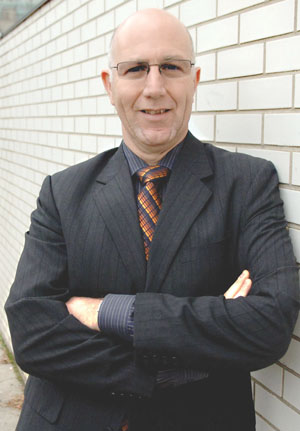ADR Chambers has begun the massive task of tackling the backlog of mediations and arbitrations at the Financial Services Commission of Ontario.

Now receiving 2,000 mediations and 500 arbitrations a month, the private dispute resolution provider hopes to provide the cure for what ails the FSCO system. As the Ontario Court of Appeal confirms that claimants can bypass mediation altogether if 60 days have passed, the alternative dispute resolution system is on the line.
On Nov. 29, 2012, the Ontario Court of Appeal issued decisions in
Hurst v. Aviva Insurance Co. and
Younis v. State Farm Mutual Automobile Insurance Co. In Hurst, the court found that mediation fails by statutory definition if the parties haven’t reached a settlement within 60 days of the date of filing an application for mediation or within the time extended by agreement. The court also found that a report of mediator wasn’t necessary for a file to proceed to arbitration or court. In Younis, the court found that a claimant must wait until the 60-day period has expired before bringing an action to court or filing for arbitration.
FSCO now worries that the backlog in mediations will simply move to the arbitration arena and is encouraging parties to remain in the queue for mediation. It hopes the average wait time for mediation will quickly decrease as ADR Chambers shoulders some of the workload as part of a two-year pilot project.
This is the latest measure attempting to get the backlog under control. While the introduction of an electronic scheduling system and other efforts improved internal productivity by 87 per cent, this wasn’t sufficient to reduce the backlog. Now, FSCO will assign a monthly batch of files to ADR Chambers. In turn, the firm will conduct mediations and arbitrations either at its own premises or at a place arranged by ADR Chambers.
Richard Worsfold, a partner at Basman Smith LLP in Toronto, is skeptical that ADR Chambers can do what FSCO didn’t. “We don’t know if they’ve hired a great army of mediators. It will be very disappointing if a backlog develops there. Then people will skip mediation and go straight to court.”
Worsfold still believes that the availability of mediation early in the process is key. “Persons who are denied benefits, who can be quite vulnerable, need quick access to mediation. The percentage of mediations that resolve matters is quite high. It will be a shame if people have to wait or be forced to go to court without waiting for mediation.”
Like many others, Worsfold is waiting to see if the current efforts can make an impact on the sheer number of matters on the docket. Allan Stitt, president of ADR Chambers, is confident the firm can handle the volume. “ADR Chambers has the mediators and resources in place to conduct the mediations it is receiving within 60 days of receiving them. If a backlog does occur, it will only occur because either insurance companies, claimants or both are not available within the 60 days.”
Albert Conforzi of the Pace Law Firm thinks the challenging aspect of the arrangement will be in the quality of the assistance given. “The mediators at FSCO have great training and experience and a knowledge base that they bring to mediation. My concern is whether or not the ADR Chambers mediators, although no doubt properly trained mediators, have a sufficient knowledge base to deal with the nuances of the accident-benefits regulations.
“We who use the FSCO system regularly go for the specialized knowledge versus the trials and tribulations of going to court where you may get a judge with very little experience with accident benefits. If you end up with an ADR mediator or arbitrator, it may lead to a result that you wouldn’t otherwise have got. The jury is still out.”
Stitt, however, wishes to offer reassurance on that point. “All mediators and arbitrators who work on FSCO files, including those who work for ADR Chambers, were appointed by the superintendent of financial services based on their skills, experience, and ability to remain neutral. Additionally, they received extensive training from both FSCO and ADR Chambers prior to receiving any files.”
Stitt confirms that if an ADR Chambers arbitrator conducts the pre-arbitration stage, a different one will handle the hearing, an arrangement that Conforzi isn’t comfortable with. “Our preference would be to have the arbitration at FSCO for the quality of the decision-making. These are important issues. People wait for years for a resolution. We need people who are not just trained in arbitration but with a sufficient knowledge base and background so you can be confident that the decision is informed. FSCO arbitrators and mediators have been dealing with the legislation for many, many years.”
Worsfold agrees, especially with respect to arbitration. “FSCO has very experienced arbitrators. I would like to see them funded properly,” he says.
In the event that the involvement of ADR Chambers doesn’t provide an end to the backlog, Worsfold would support a decision to open up mediation to all mediators as in the mandatory system on the civil side in which the parties merely have to certify that they’ve had a mediation before a matter proceeds to trial. “They should spread the net a lot wider in terms of available mediators,” he says.
For more, see "FSCO mediation ruling could cost $300M: lawyer."

 Now receiving 2,000 mediations and 500 arbitrations a month, the private dispute resolution provider hopes to provide the cure for what ails the FSCO system. As the Ontario Court of Appeal confirms that claimants can bypass mediation altogether if 60 days have passed, the alternative dispute resolution system is on the line.
Now receiving 2,000 mediations and 500 arbitrations a month, the private dispute resolution provider hopes to provide the cure for what ails the FSCO system. As the Ontario Court of Appeal confirms that claimants can bypass mediation altogether if 60 days have passed, the alternative dispute resolution system is on the line.